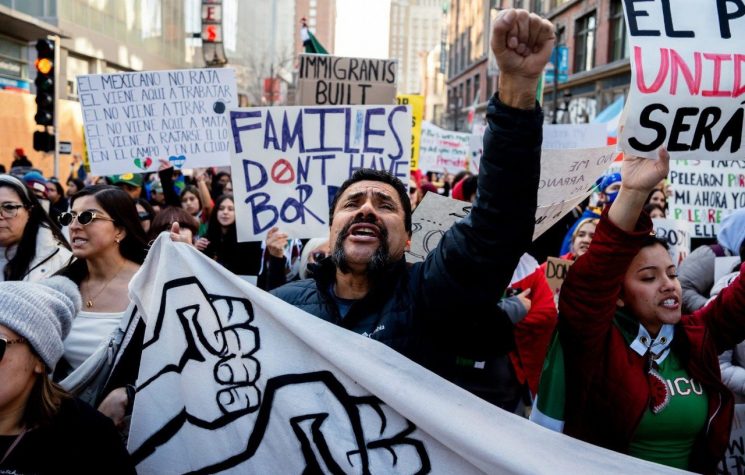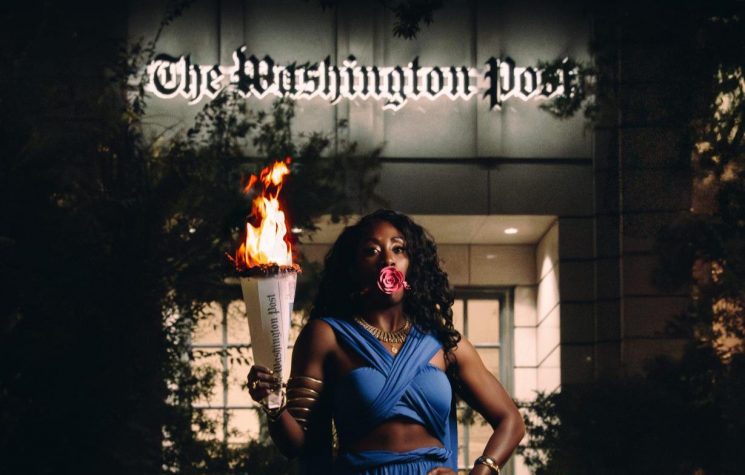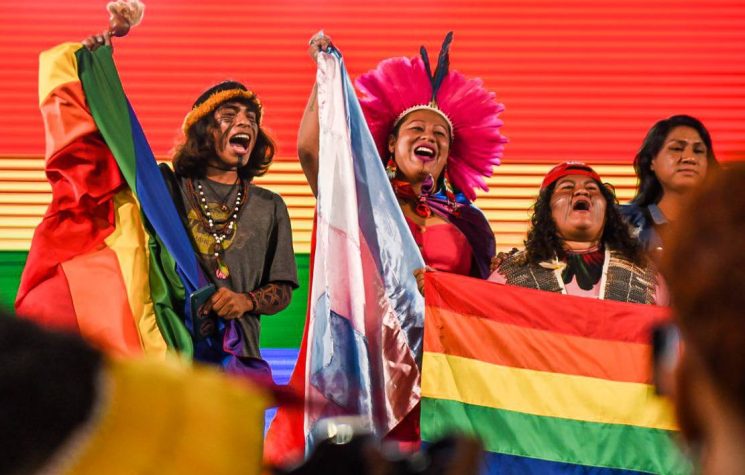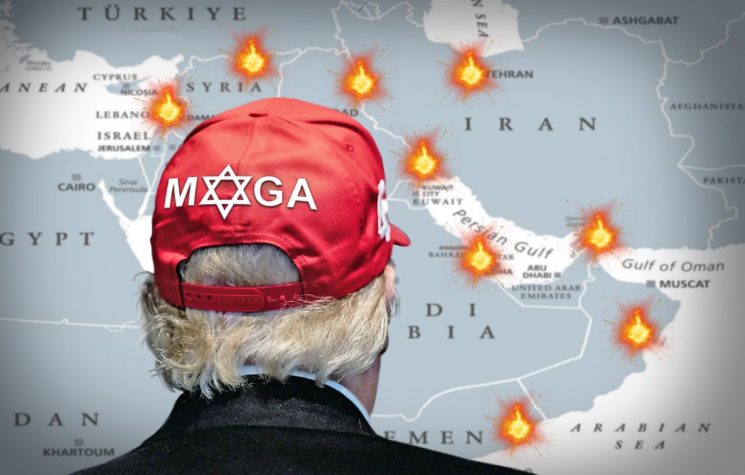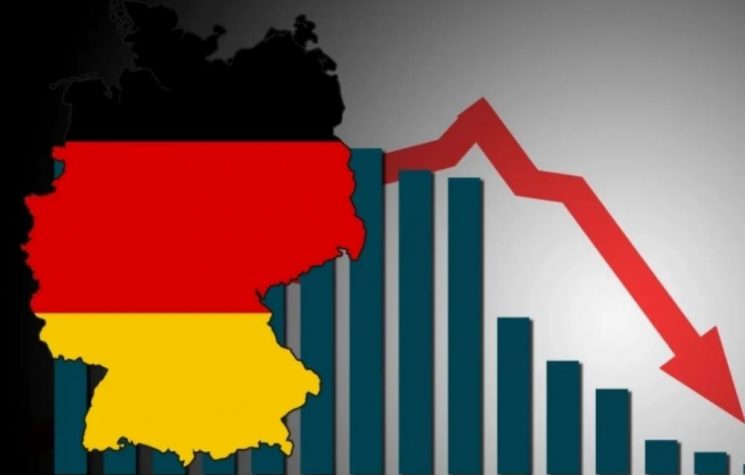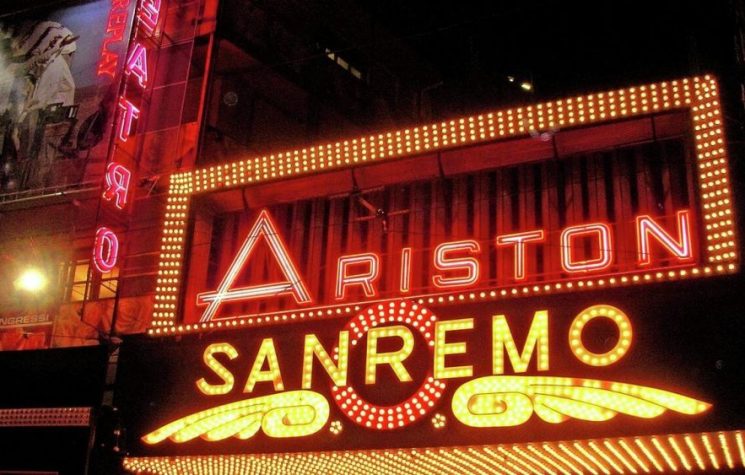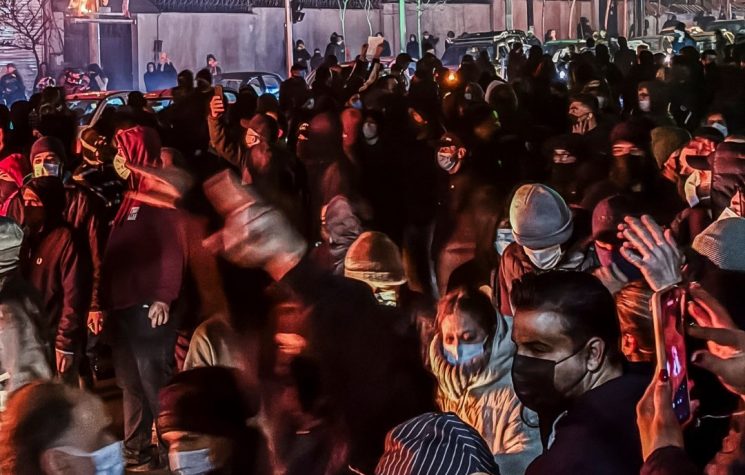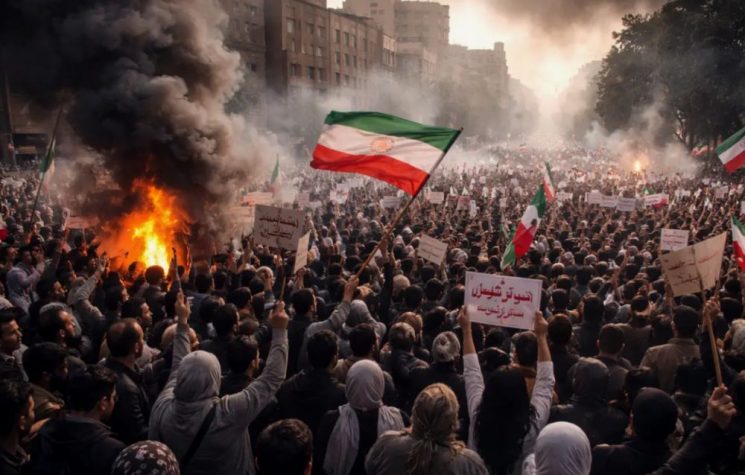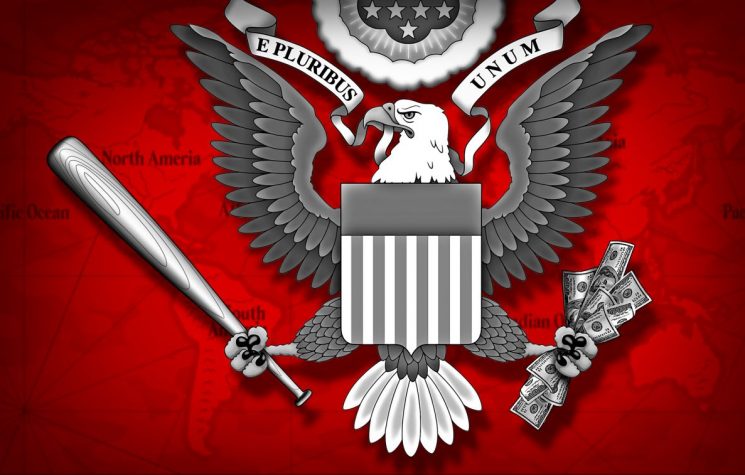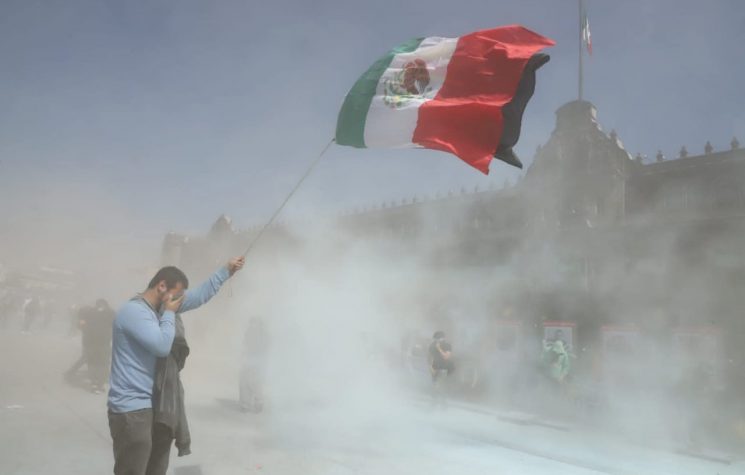Whites are a race being wrongly chastised for a hideous offense in the name of politics as usual, Robert Bridge writes.
❗️Join us on Telegram![]() , Twitter
, Twitter![]() , and VK
, and VK![]() .
.
Contact us: info@strategic-culture.su
In the blistering summer of 2020, as Black Lives Matter marauders were cutting a billion-dollar swath of destruction across urban America, editorial departments of the major news publications decided this was the perfect time to update their style guides by capitalizing ‘Black’ while retaining the lowercase for ‘whites.’
Now, American consumers of mass media are forced to swallow news reports like this one from The Hill: “As breast cancer deaths decline in America, racial disparities persist in the mortality rates between Black and white women. Those rates remain 40 percent higher for Black women, who are also more likely than white women to be diagnosed with breast cancer under the age of 50…”
A person needn’t be a White supremacist or a card-carrying KKK member to feel some resentment and even anger with this editorial sleight of hand, which smacks hard of blatant discrimination. Indeed, it is enough to make an otherwise tolerant person entertain the dangerous notion that the ‘systemic racism’ they constantly read about is aimed at White people more than anyone.
It would be helpful if the rationale for capitalizing ‘Blacks’ and belittling ‘Whites’ was logical from a purely grammatical point of view, but that does not appear to be the case. Here is John Daniszewski, the VP for Standards at the Associated Press who should know better, explaining the reasoning behind the modification (take special note of the ‘desire’ that precedes ‘reason’): “There was clear desire and reason to capitalize Black. Most notably, people who are Black have strong historical and cultural commonalities, even if they are from different parts of the world and even if they now live in different parts of the world. That includes the shared experience of discrimination due solely to the color of one’s skin.”
“White people generally do not share the same history and culture, or the experience of being discriminated against because of skin color,” Daniszewski continues. “We agree that white people’s skin color plays into systemic inequalities and injustices, and we want our journalism to robustly explore those problems.”
Meanwhile, The Chicago Sun-Times explained its decision to capitalize ‘Black’ but not ‘White’ was due to “the unique role that Black art and culture have played in our society” while adding that “cultural trends among white people, e.g. Italian Americans, Irish Americans, etc., are much more disparate.”
Where to begin?
First, it would be wrong to assert that White people do not share “historical and cultural commonalities,” or never suffered discrimination at the hands of an oppressor. After all, it was religious persecution that prompted many White Europeans to take a long and perilous voyage across the Atlantic Ocean in the first place. At the same time, it is wrong to assume that Black people all share the same history. The African continent boasts 54 different sovereign states, far more than Europe, each one with a radically different story to tell.
And long before the creation of the Atlantic slave trade, which saw millions of Africans shipped to the Americas to toil for White plantation owners, there was the equally cruel Barbary slave trade. This little mentioned institution saw White Europeans from Italy to the Netherlands, Ireland and Britain working as slaves in the Ottoman Empire, which was not particularly known for its human rights record.
Ohio State University History Professor Robert Davis describes the White slave trade as “minimized” by most modern historians in his book, ‘Christian Slaves, Muslim Masters.’ Davis estimates that up to 1.25 million White Christian Europeans were enslaved in North Africa from the beginning of the 16th century to the middle of the 18th by slave traders from North Africa. Does this grim legacy warrant a capital ‘W’ for Whites in mainstream media newsrooms? Apparently not. Yet even the National Association of Black Journalists recommends that a capital letter be assigned to “any color.”
Another reason that newsrooms are shunning the uppercase ‘W’ in Whites is due to the legend of ‘White supremacy’, which has more unsubstantiated sightings than Sasquatch. Indeed, aside from the 2017 ‘White nationalist’ tiki torch parade in Charlottesville, Virginia (which got the young, preppy ‘Nazis’ slammed for culturally assimilating Polynesian culture), bookended by the Jan.6 ‘insurrection,’ proof that America is inhabited by a subculture of White supremacists is negligent, and exists as the most pernicious left-wing conspiracy theory. Nevertheless, the newsroom pedants, fully on board the Woke Express, argue that capitalizing the term ‘White’ conveys a sense of legitimacy to the objectives of the White nationalists.
“It would make me uncomfortable to start capitalizing white,” said Columbia University linguist John McWhorter. “You know, there’s a little smell of the Confederate flag about it…[T]he white nationalists have gotten a handle on ‘White’ to enshrine whiteness as something separate and in their sense something preferable.”
Dear academics, media hacks and assorted fools, please have a seat. The drab truth of the matter is that most White people never give much thought about their melanin-lacking selves, except when we go sun-worshipping while on that rare vacation. Just like other Blacks and Whites and every pigment in between, we wake up, go to the bathroom and put our pants on. We sit in rush-hour traffic and go to jobs we loathe. And when we see our pale-faced tribe diminished in a prejudiced media with a little ‘W’ – despite freeing the African slaves in a Civil War that saw up to one million of us dead on a bloodstained battlefield – we bite our tongues and turn the page. That’s not the sign of a ‘supremacist’ complex; it’s not the sign of a racist people. It’s the sign of a race that is being taken for a ride by a sick establishment; the sign of a race that is being wrongly chastised for a hideous offense in the name of politics as usual. But a word of warning: while patience may be a virtue, it’s got a limit.
















